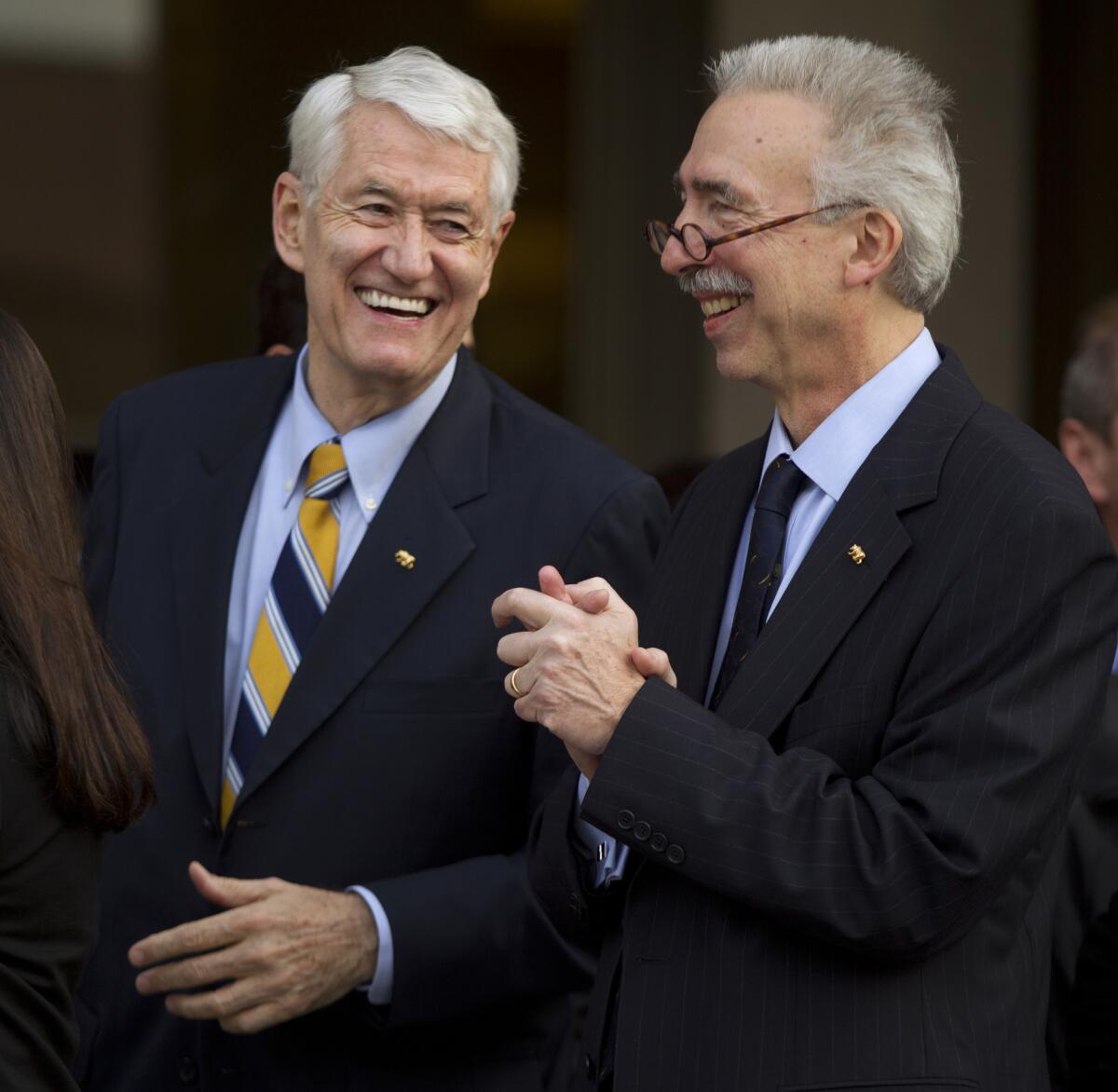Free speech, ‘civility,’ and how universities are getting them mixed up

When someone in power praises the principle of free speech, it’s wise to be on the lookout for weasel words. The phrase “I favor constructive criticism,” is weaseling. So is, “You can express your views as long as they’re respectful.” In those examples, “constructive” and “respectful” are modifiers concealing that the speaker really doesn’t favor free speech at all.
The targets of free speech never think it’s constructive or respectful. Quite the contrary.
So now here’s Nicholas Dirks, chancellor of UC Berkeley, on Friday, marking the fiftieth anniversary of the Berkeley Free Speech Movement, which he says “made the right to free expression of ideas a signature issue for our campus.”
He wrote in an email to the campus community: “We can only exercise our right to free speech insofar as we feel safe and respected in doing so, and this in turn requires that people treat each other with civility. Simply put, courteousness and respect in words and deeds are basic preconditions to any meaningful exchange of ideas.”
Dirks’ words have caused an uproar at Berkeley, with good reason. “Civility” is the biggest weasel word of all. It’s at the heart of the controversy over academic freedom now unfolding on the campus of the University of Illinois, which we reported on here. (Dirks’ spokesman says he was “misconstrued,” and was just making a request, not setting a rule for campus debate.)
As Ken White of the group legal blog Popehat picks apart Dirks’s statement: “Civility is an admirable value. It is right and fit that we ask it of each other and impose social consequences upon the uncivil. But speech need not be civil to be entitled to robust protection. Berkeley’s free speech movement did not seek to protect civil speech; the Vietnam war was not an occasion for civility.”
In fact, it’s doubtful that words of Mario Savio, the leader of the Free Speech Movement in 1964, were taken as “respectful” or “civil” at the time -- or that they would be in today’s oversensitive academia. Here’s how he closed his most famous speech that December, from the steps of Berkeley’s Sproul Hall:
“There is a time when the operation of the machine becomes so odious, makes you so sick at heart, that you can’t take part; you can’t even passively take part, and you’ve got to put your bodies upon the gears and upon the wheels, upon the levers, upon all the apparatus, and you’ve got to make it stop. And you’ve got to indicate to the people who run it, to the people who own it, that unless you’re free, the machine will be prevented from working at all!”
Those sound like a very uncivil words.
A major problem with using words like “respect” and “civility” to mark the boundaries of free speech protections is that they don’t have fixed definitions. One person can be deeply affronted (or claim to be) by language that another finds perfectly innocuous. And it’s one thing to set standards for expression in private forums -- comment pages on websites, for example -- and quite another to impose them as conditions for legal protection of free speech.
Consider the response of Phyllis Wise, the chancellor at Illinois, to the controversy on her campus. Illinois fired Steven Salaita, an expert in Israeli-Arab relations, after he posted some strongly worded tweets critical of Israel’s conduct in Gaza. The university claims that Salaita wasn’t entitled to free-speech protections afforded tenured faculty because he hadn’t been formally hired, but that claim has been widely questioned.
In her statement, Wise declares herself “absolutely...committed” to the “bedrock principle” of academic freedom. But then she says educational discourse must be conducted “in a respectful way.” She says, “what we cannot and will not tolerate at the University of Illinois are personal and disrespectful words or actions that demean and abuse either viewpoints themselves or those who express them.” She says, “tenure also brings with it a heavy responsibility to continue the traditions of scholarship and civility upon which our university is built.”
There are those words again. In the Salaita case, “respect” and “civility” are used as diversions to distract from charges that the University of Illinois broke its commitment to Salaita not because his words on behalf of the Gaza Palestinians angered supporters of Israel who are big contributors to the university and agitated for his removal, but because he wasn’t “respectful” and “civil.”
See how that works? Berkeley Chancellor Dirks should take a lesson: Insistence on “civility” is a weapon, and it’s almost always wielded by those in power against those whose free speech needs protection.
(For more on the Dirks statement, read Eugene Volokh, Greg Lukianoff, and Berkeley’s graduate student newspaper.)
Keep up to date with The Economy Hub by following @hiltzikm.
More to Read
Inside the business of entertainment
The Wide Shot brings you news, analysis and insights on everything from streaming wars to production — and what it all means for the future.
You may occasionally receive promotional content from the Los Angeles Times.











